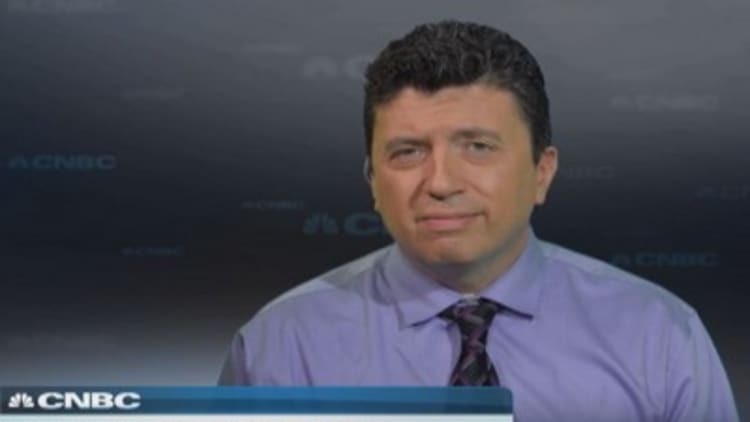
As more retail investors make the move from mutual to exchange-traded funds, one company appears to be reaping the biggest share of the benefits.
In a year that has been sluggish otherwise for the $1.76 trillion ETF industry, Vanguard has seen its assets under management grow substantially, putting it in position to rise from third to second in the overall ranking of fund families, according to ETF.com.
In fact, the firm—founded by investing legend and index fund advocate Jack Bogle—has seen individual ETFs it owns occupy three of the top four spots and five of the top seven in terms of inflows. Vanguard led all providers through the first four months with $18.6 billion in new money.
Industry experts attribute its success to a variety of factors, but at the center is retail investor acceptance of ETFs as a vehicle after generations of putting money into more expensive mutual funds. The two differ in that, along with lower fees, ETFs are more liquid and trade in much the same way as stocks.
Read MoreCan anything save active management?
"What you see in ETF flows is a pretty clear story as Vanguard has been dominating in attracting flows over the past several years," Morningstar analyst Mike Rawson said. "Part of the reason is when you think of Vanguard you think of low-cost index funds. A lot of people who use Vanguard funds are buy-and-hold investors. They've done a good job of attracting clientele who think the same way they do."
To be sure, analyzing ETF fund flows is tricky and thus not always the best barometer for discerning broad market trends. Certain fund families are volatile and are used as places to park money—think the SPDR S&P 500 or Power Shares QQQ— in between making more granular choices, said Nicholas Colas, chief market strategist at New York-based brokerage ConvergEx.
But overall the trend does suggest that with Vanguard gaining on competitors BlackRock and State Street—the top two firms respectively and sponsors of funds that are popular with traders—retail investors are making a statement.
Traditionally, managers pushed clients to mutual funds and their big "loads," or up-front fees that made the managers money regardless of performance. But as those managers leave the big Wall Street firms and strike out on their own as independent financial advisers, the dynamics have changed. More are now pushing clients to lower-cost ETFs and banking on making money as the funds rise in value.
Read MoreFinancial advisors slow to train their successors
"ETFs have really changed the game not just for individual investors but they're also changing the distribution in mutual funds," Rawson said. "Everything was based on loads and distribution fees. ETFs don't have those. ...Things are changing and it's benefiting individual investors and benefiting ETF advisers."
Through the first four months of 2014, BlackRock and its iShares funds remained king overall of the ETF world with $683.1 billion under management. State Street and its ever-popular SPDR, or "spider," funds ranked second at about $386 billion, while Vanguard was nipping at its heels with nearly $360 billion.
Read MoreWhat's next for the 401(k) industry?
For their part, Vanguard officials say they haven't been doing anything special this year to propel the surge in flows.
"Our flows have been pretty consistent and we attribute that to investors seeing the value in Vanguard's name and low-cost philosophy," spokesman Dave Hoffman said. "We're pretty much doing the same things that we've always done."





